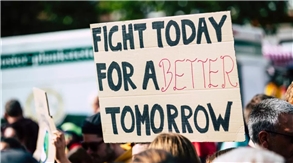Plague Journal, I’m American Made
‘
I receive a weekly email newsletter from Professor Scott Galloway. Galloway is a professor in the New York University Stern School of Business. He is a podcast host, and entrepreneur. The professor is philosophically astute, able to see the “big picture.” For today I will excerpt some of Galloway’s words from his No Mercy/No Malice newsletter. He speaks quite personally on the topics of individualism in America, conservatism, our inept response to the pandemic, and what we must do for the future.
Individualism is an essential part of the American story. The pilgrims left England on the Mayflower to freely practice their religion. Cowboys tamed the Wild West. Inventors and industrialists built the country’s commercial might. In my area of focus, technology, the idolatry of innovators is foundational. Success is the result of individual achievement, we are told, and failure comes from a lack of grit and genius. The message is seductive for the successful.
As the only child of a single immigrant mother who lived and died a secretary, I used to think I was self-made. But the truth is that I’m American-made and have benefited from a time and place of unprecedented prosperity, which dampened my failures and bolstered my successes.
To be sure, I work hard. But none of my ventures would have been possible without California’s public-education system, where I went to primary school, university, and business school from the 1970s to 1990s for a total of $10,000. I entered as an unremarkable, lower-middle-class kid. I left with credentials, a network, and my first startup. Without the generosity of California’s taxpayers, and being born in the right demographic (white, male), I’d probably still be installing shelving — my job until UCLA accepted my second undergrad application.
 The same is true for many of our myths of individualism. Persistence and the plough “settled” the frontier, not a handsome white guy with a six-shooter and a pack of smokes. Cowboys were poor men who did dreary work for low wages; Hollywood and Madison Avenue morphed them into gunslinging heroes. Likewise, the wonders of Silicon Valley were built on a foundation of government-funded projects — the computer chip, the internet, the mouse, the web browser, and the GPS.
The same is true for many of our myths of individualism. Persistence and the plough “settled” the frontier, not a handsome white guy with a six-shooter and a pack of smokes. Cowboys were poor men who did dreary work for low wages; Hollywood and Madison Avenue morphed them into gunslinging heroes. Likewise, the wonders of Silicon Valley were built on a foundation of government-funded projects — the computer chip, the internet, the mouse, the web browser, and the GPS.
Yes, the private sector deftly turned publicly-funded technologies into commercial successes, and there was a place for individual genius in that. But those successes were also built on long hours by tens of thousands of engineers (many of them immigrants, many of whom went to public schools). The Ayn Rand image of the solo entrepreneur — Hank Reardon toiling alone in his laboratory to invent a new kind of steel — is a pernicious deception. …
Antipathy to government institutions is often called “conservatism,” but it bears no resemblance to any principled tradition by that name. Conservatism is rooted in a respect for institutions. Its intellectual founding father, Edmund Burke, wrote, “Nothing turns out to be so oppressive and unjust as a feeble government.” The observation comes from his most famous work, a criticism of the anti-institutional, pro-individualism of the  French Revolution and the bloody terror that followed. There is plenty to criticize about the American administrative state, but idolatry of the individual is hardly a true “conservative” critique. …
French Revolution and the bloody terror that followed. There is plenty to criticize about the American administrative state, but idolatry of the individual is hardly a true “conservative” critique. …
In the U.S., Covid-19 did not find an exceptional country. Instead, the virus found a land of individuals — too many of them poor, overweight, under-educated, and overly imprisoned. It found underfunded institutions and a population teeming with a sense of entitlement rather than community. …
America’s response was inept because the institutions designed to protect the public failed or were enfeebled. At almost every level of society, people chose individual convenience over collective well-being. …
 But the bigger point is that we must pursue a cultural shift: a renewed recognition of the value of institutions, and of the balance between the individual and the community in a prosperous society. Certainly, people should complain about the arcane and sometimes onerous regulations that hamper entrepreneurship — at the point of contact, institutions often feel like friction, like something to be avoided. Yet we must also recognize that beyond disagreements over the size and specifics of government institutions, those institutions are essential and honorable — as are the people who serve in them.
But the bigger point is that we must pursue a cultural shift: a renewed recognition of the value of institutions, and of the balance between the individual and the community in a prosperous society. Certainly, people should complain about the arcane and sometimes onerous regulations that hamper entrepreneurship — at the point of contact, institutions often feel like friction, like something to be avoided. Yet we must also recognize that beyond disagreements over the size and specifics of government institutions, those institutions are essential and honorable — as are the people who serve in them.
Individualism is embedded in America’s cultural identity, but it is a sign of national character to act together as a community. …
The paragraphs excerpted here are from an article by Galloway recently published in The Economist. For the full text of Galloway’s newsletter comments CLICK HERE.